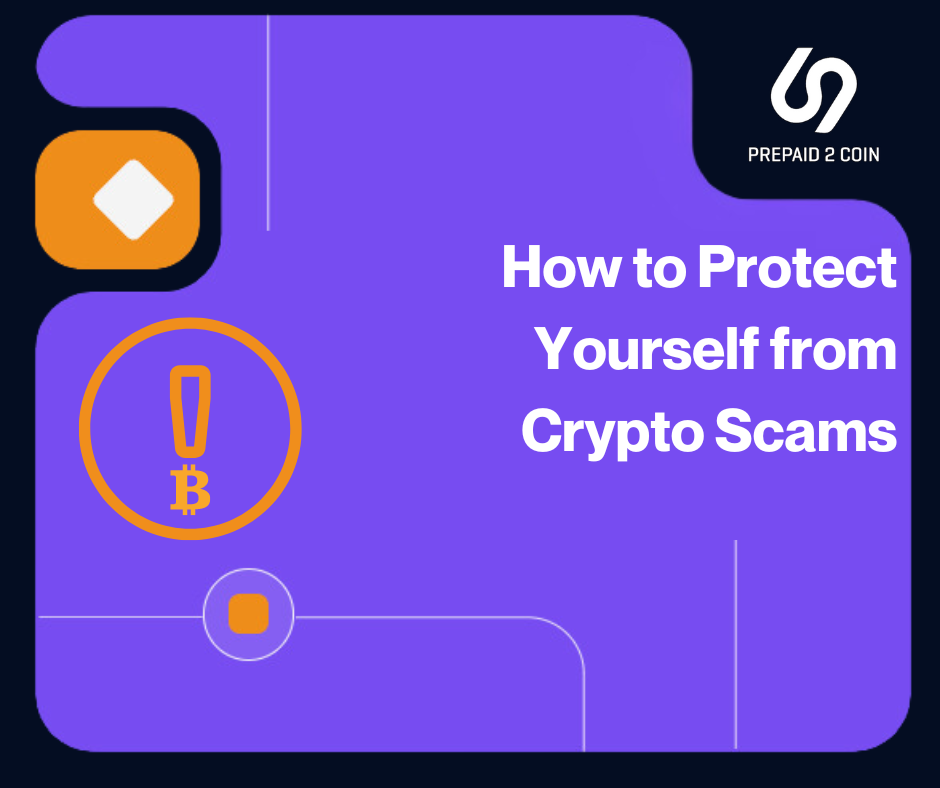
















 How to Protect Yourself from Crypto Scams
How to Protect Yourself from Crypto Scams
As cryptocurrencies continue to gain mainstream popularity, they have unfortunately become a target for scammers and cybercriminals. Protecting yourself from crypto scams is essential to safeguard your digital assets and personal information. This blog will explore common crypto scams and provide practical tips on how to avoid falling victim to them.
Phishing Scams:
Phishing scams involve fraudsters impersonating legitimate entities to trick you into revealing sensitive information such as private keys, passwords, or seed phrases. They often use emails, fake websites, and social media to deceive users.
Ponzi Schemes:
Ponzi schemes promise high returns with little to no risk by using the investments of new participants to pay returns to earlier investors. These schemes eventually collapse when there are not enough new investors to sustain the payouts.
Fake ICOs (Initial Coin Offerings):
Scammers create fake ICOs to lure investors into funding a non-existent cryptocurrency project. They often use professional-looking websites and marketing materials to appear legitimate.
Rug Pulls:
In a rug pull scam, developers create a new cryptocurrency or DeFi project, attract investments, and then suddenly withdraw all funds, leaving investors with worthless tokens.
Pump and Dump Schemes:
Fraudsters artificially inflate the price of a cryptocurrency through false or misleading information, encouraging others to buy in. Once the price is high enough, they sell off their holdings, causing the price to crash and leaving other investors with losses.
Research Thoroughly:
Before investing in any cryptocurrency or project, conduct thorough research. Verify the team behind the project, their credentials, and previous work. Check for whitepapers, roadmaps, and detailed project plans. Look for independent reviews and opinions from reputable sources.
Verify URLs and Sources:
Always double-check URLs to ensure you are visiting the official website of a cryptocurrency project or exchange. Be cautious of websites that use similar-looking domain names to impersonate legitimate sites. Bookmark important sites to avoid typing errors.
Use Two-Factor Authentication (2FA):
Enable 2FA on your cryptocurrency accounts to add an extra layer of security. This requires you to provide a second form of verification, such as a code sent to your mobile device, in addition to your password.
Beware of Unsolicited Messages:
Be cautious of unsolicited messages, whether they come via email, social media, or messaging apps. Scammers often use these channels to impersonate legitimate entities and trick you into revealing sensitive information or making investments.
Check for SSL Encryption:
Ensure that any website you use for cryptocurrency transactions has SSL encryption. Look for the padlock icon in the browser address bar and make sure the URL starts with "https://". SSL encryption ensures that data transmitted between your browser and the website is secure.
Avoid High-Pressure Tactics:
Scammers often use high-pressure tactics to rush you into making quick decisions. Be wary of offers that seem too good to be true or that require immediate action. Take your time to research and verify the legitimacy of any investment opportunity.
Keep Your Private Keys Secure:
Never share your private keys, seed phrases, or passwords with anyone. Store them securely offline, preferably in a hardware wallet or a secure physical location. Avoid keeping sensitive information on devices connected to the internet.
Use Reputable Exchanges and Wallets:
Only use well-known and reputable cryptocurrency exchanges and wallets. Check for reviews, security features, and regulatory compliance. Avoid using unknown or unverified platforms, as they may lack adequate security measures.
Educate Yourself:
Stay informed about the latest trends and developments in the cryptocurrency space. Join online communities, follow reputable news sources, and participate in forums to learn from other users' experiences and stay updated on potential threats.
Report Suspicious Activity:
If you encounter a potential scam or suspicious activity, report it to the relevant authorities and platforms. This helps protect the broader community and may assist in recovering lost funds.
Protecting yourself from crypto scams requires vigilance, research, and adherence to best practices. By understanding the common types of scams and implementing the tips provided, you can significantly reduce the risk of falling victim to fraud. As the cryptocurrency space continues to evolve, staying informed and cautious is essential to safeguarding your digital assets and ensuring a secure and positive experience in the world of digital finance.
Stay safe, stay informed, and enjoy the benefits of cryptocurrency with confidence.